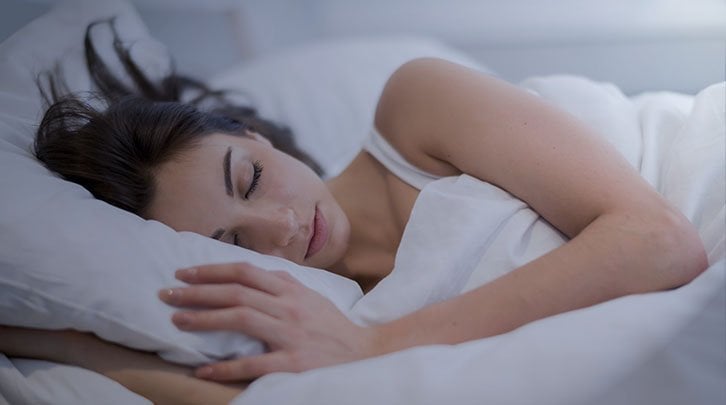The importance of beauty sleep
Beyond leaving us cranky and foggy, too little sleep affects our bodies as a whole. Health-wise, long-term sleep deprivation has been linked to diabetes, high blood pressure and obesity —but what effect does sleep (or lack thereof) have on our skin?
Beauty sleep: Fact or fiction?
Science has confirmed that beauty sleep is indeed a necessity, as every cell in our bodies—including skin cells—use this time to recuperate and regenerate. More specifically, nighttime is when fresh, healthy cells rise to the skin’s surface and the damage accumulated over the course of the day is repaired. But without enough shut-eye, the skin has trouble getting its job done, and here’s a closer look at what’s going on beneath the surface…
Cortisol stresses your skin
The body perceives lack of sleep as a form of stress and responds by producing a hormone called cortisol. In addition to negative effects on the immune system and blood sugar levels, cortisol compromises the supportive collagen in our skin, which leads to premature signs of aging like fine lines, wrinkles and loss of elasticity. The presence of cortisol also causes blood vessels to constrict, which reduces the amount of oxygen and nutrients the skin receives, in turn making it look dull and sallow.
The skin’s barrier begins to break down
Think of the skin’s barrier as a brick wall. The bricks are the skin cells and the mortar is comprised of fats that hold the bricks together. Without adequate sleep, the skin’s barrier is less able to repair itself, which means moisture becomes free to leave and it comes easier for irritants to enter. This translates to dehydration, sensitivity, inflammation and accentuated fine lines and wrinkles.
Alcohol makes matters worse
There’s also a connection between our lifestyle habits, sleep and the appearance of our skin come morning. Many of us turn to a glass (or two) of Merlot to unwind at the end of the day, unaware of the effect this has on our appearance. Alcohol may make you sleepy and help you doze off, but it actually hinders both sleep quantity and quality. And don’t forget that alcohol is a diuretic, which means it dehydrates the body—and skin—leading to more pronounced lines and wrinkles.
The good news…
Fortunately, the skin recovers from sleep deprivation rather quickly—but a sleep marathon isn’t the solution. Too much sleep has a negative impact on the skin as well, and can lead to cell breakdown. Of course an effective skincare regimen can help mitigate the effects that our hectic, stressful lives may have on our skin, but making “beauty sleep” a priority is essential for a youthful, healthy, radiant complexion.


